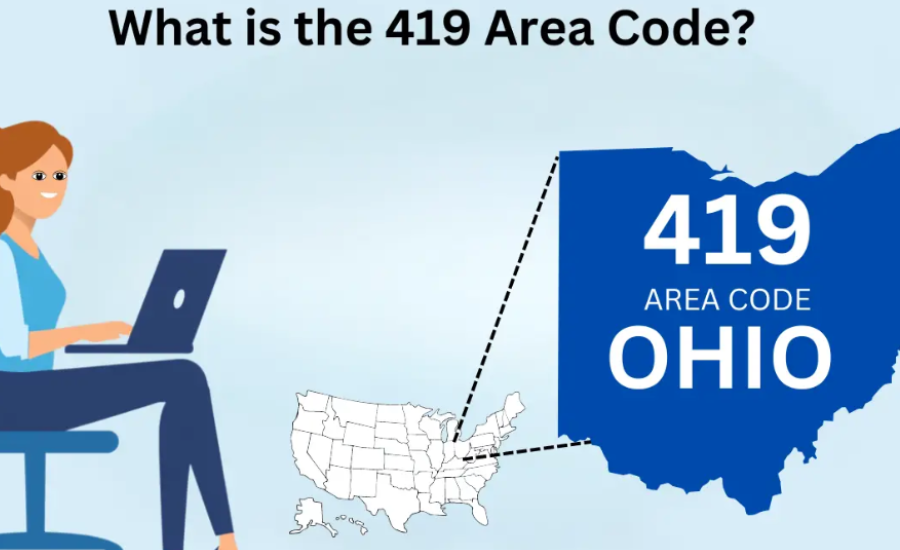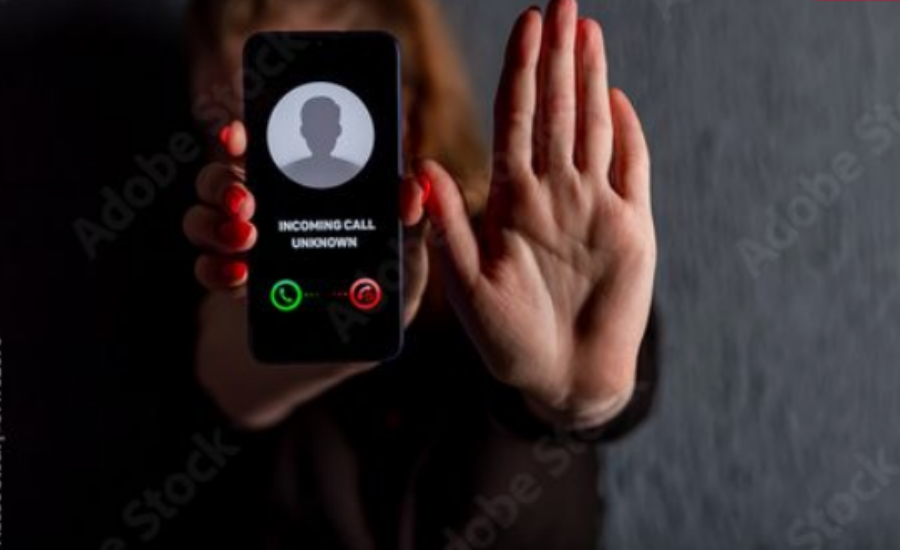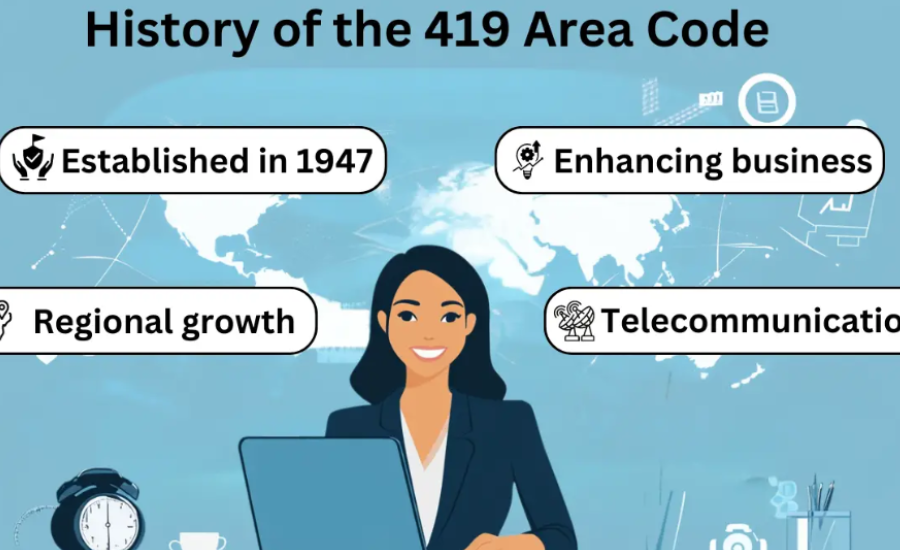In today’s fast-paced digital world, our phones are integral to staying connected with friends, family, and professional contacts. However, with this connectivity comes the challenge of managing calls from unknown numbers, such as “419-665-7945.” Receiving a call from an unfamiliar number can spark a series of questions: Who is on the other end? Is the call important? Could it be a scam? Addressing these concerns is crucial as we navigate the complexities of modern communication.
Understanding the Significance of Area Code 419
The phone number 419-665-7945 is identified by area code 419, which is associated with northwestern Ohio. This area code encompasses cities such as Toledo, Findlay, and Sandusky. Recognizing this can provide context about the origin of the call. If you live in or have connections to Ohio, a call from this area code might be relevant. Conversely, if you have no connections to this region, the call might be less relevant or potentially suspicious.

The Importance of Area Codes in Assessing Call Legitimacy
Understanding area codes can help you gauge the legitimacy of a call. For instance, area codes are assigned to specific geographic regions, which can sometimes offer clues about the caller’s intentions. While this information alone doesn’t guarantee the authenticity of the call, it can help you make an initial assessment.
Evaluating Risks Associated with Answering Unknown Calls
Answering calls from unfamiliar numbers, like 419-665-7945, can put you at risk, with one major concern being the potential for scams. Scammers often use phone calls to trick individuals into revealing sensitive information, including Social Security numbers, bank details, or credit card information. They may pose as representatives from trustworthy organizations, such as banks or government agencies, to build trust and extract personal data.
Understanding the Risk of Identity Theft and Financial Fraud
Once scammers gain access to your personal information, they can engage in identity theft, empty your bank accounts, or make unauthorized credit card transactions. Recognizing these risks is essential to protecting your financial and personal information.
The Issue of Robocalls and Their Implications
Robocalls, or automated calls, are another prevalent issue. These calls can be persistent and annoying, and may sometimes be illegal. Robocalls are frequently used for telemarketing or fraudulent purposes and can include misleading offers or fake promotions. These automated messages can be an invasion of privacy and contribute to a broader issue of unwanted calls.
Types of Calls from Unknown Numbers
Telemarketing calls are made by businesses to promote products or services. While some of these calls may be legitimate and informative, others can be aggressive or misleading. It’s important to be cautious, particularly if the offer seems too good to be true or if the caller is employing high-pressure tactics.
Scam Calls: Recognizing Deceptive Tactics
Scam calls are designed to deceive you into providing personal information or making payments. Scammers often create a sense of urgency or fear, claiming issues like compromised bank accounts or overdue taxes, to pressure you into quick decisions. Being aware of these tactics can help you avoid falling victim to fraud.
Robocalls: Dealing with Automated Messages
Robocalls involve pre-recorded messages delivered by automated systems. These calls are often used for marketing but can also be part of a scam. Examples include notifications about fake prizes or expiring warranties. Engaging with robocalls can lead to an increase in unwanted calls and further complications.
Debt Collection Calls: Managing Communications from Collectors
If you have outstanding debts, you might receive calls from debt collectors. While legitimate debt collection is lawful, some collectors use aggressive or intimidating tactics. It is essential to verify the legitimacy of the debt and understand your rights before making any payments or providing personal information.
Survey Calls: Assessing the Legitimacy of Survey Requests
Survey calls are another category of calls from unknown numbers. Many surveys are legitimate, but some may be used by scammers to gather personal information for fraudulent purposes. Exercise caution when sharing information during surveys and verify the authenticity of the organization conducting the survey.

Strategies for Identifying and Managing Unknown Calls
If you receive a call from an unknown number like 419-665-7945 and are unsure about the caller’s identity, letting the call go to voicemail can be a prudent approach. Legitimate callers typically leave a message explaining the reason for their call. If no message is left, it might indicate that the call was not important or legitimate.
Using Reverse Phone Lookup Services: Verifying Caller Information
Reverse phone lookup services can help you identify the caller based on their phone number. These services can provide details about the caller’s identity and help you determine if the call is from a reputable source. Several websites and apps offer reverse phone lookup, with some providing free services.
Blocking the Number: Preventing Future Unwanted Calls
If you frequently receive calls from an unknown number, such as 419-665-7945, it may be wise to block the number. Most smartphones have features that allow you to block specific numbers, preventing them from calling or texting you in the future. This can help reduce the frequency of unwanted calls.
Reporting the Call: Taking Action Against Fraudulent Calls
If you suspect that a call is a scam or a robocall, reporting it to the appropriate authorities can help combat fraudulent activities. In the United States, you can report unwanted calls to the Federal Trade Commission (FTC) or the Federal Communications Commission (FCC). These agencies work to address and mitigate fraudulent call activities.
Protecting Your Personal Information: Best Practices
Never share personal information over the phone unless you are confident about the caller’s identity. This includes sensitive information like Social Security numbers, bank account details, and credit card numbers. Reputable organizations will not request such information without proper verification through other means.
The Broader Impact of Scam and Robocalls
Scam and robocalls are not just a minor inconvenience; they can have serious consequences, including financial loss, identity theft, and emotional stress. The ease and low cost of making these calls contribute to their widespread occurrence. Technologies like voice over IP (VoIP) enable scammers to target individuals globally and use techniques like caller ID spoofing to disguise the true source of the call.
Efforts to Curb Unwanted Calls
To combat the growing problem of scam and robocalls, various regulatory measures have been implemented. In the U.S., the Federal Communications Commission (FCC) has introduced regulations such as the Telephone Consumer Protection Act (TCPA) to restrict telemarketing calls, including those from robocallers. The FCC has also mandated the implementation of call authentication technology known as STIR/SHAKEN to help verify incoming calls and prevent caller ID spoofing.
The Ongoing Challenge and Need for Vigilance
Despite these regulatory efforts, scam and robocalls remain a significant issue, underscoring the importance of remaining vigilant and taking proactive steps to protect oneself from unwanted calls. Continued awareness and adaptation to new scams and techniques are essential in safeguarding personal information.
Real-Life Experiences and Their Impact
Many people have their own experiences with receiving unwanted calls from numbers such as 419-665-7945. These experiences can vary from mild annoyance to severe financial loss. For example, some individuals might receive aggressive calls from numbers claiming to be utility companies, pressuring immediate payments to avoid service interruptions. Such tactics can lead to individuals being deceived into providing payment information.
Recognizing and Avoiding Fraudulent Offers
Another common scenario involves robocalls offering enticing promotions or prizes. While these offers may seem appealing, it’s crucial to remember that legitimate businesses typically do not extend such offers via robocalls. Identifying red flags and avoiding interaction with suspicious calls can help protect against fraud.
Emotional and Psychological Effects of Being Scammed
Being targeted by scam calls can have significant psychological effects. Victims may feel shame, guilt, and embarrassment. The manipulation and deceit used by scammers can lead to lasting anxiety or a fear of answering the phone, especially if they have suffered financial loss or identity theft. It’s important for victims to seek support and remember that help is available.
Accessing Support and Resources
Various organizations provide resources for scam victims, such as counseling services and financial assistance. These resources can provide support in dealing with the psychological impacts of being scammed and help individuals recover from their experiences.
FAQs about 419-665-7945
Q: What should I do if I receive a call from an unfamiliar number like 419-665-7945?
A: If you receive a call from an unfamiliar number, it’s best to proceed with caution. Let the call go to voicemail if you’re unsure about the caller’s identity. Legitimate callers usually leave a message. If you receive no message or the voicemail seems suspicious, consider not returning the call.
Q: How can I identify if a call is a scam?
A: Scam calls often create a sense of urgency or fear, such as claiming you owe money or have a problem with your account. They might also request personal information, such as Social Security numbers or bank details. If an offer seems too good to be true or the caller is pressuring you, it could be a scam.
Q: Are there any tools to help identify unknown callers?
A: Yes, reverse phone lookup services can help identify the caller. These services provide information about the phone number and the caller’s identity. Additionally, call-blocking and spam-filtering apps can help manage and identify unknown calls.
Q: How can I report a suspicious or fraudulent call?
A: In the U.S., you can report unwanted or suspicious calls to the Federal Trade Commission (FTC) or the Federal Communications Commission (FCC). Reporting these calls helps these agencies track and address fraudulent activities.
Q: What are the signs of a robocall?
A: Robocalls use automated systems to deliver pre-recorded messages. Common signs include a lack of personal interaction, generic greetings, and a message that seems like a pitch or offer. Legitimate businesses rarely use robocalls for important communications.
Conclusion
Receiving calls from unfamiliar numbers, such as 419-665-7945, can be concerning due to potential risks like scams, identity theft, and robocalls. Understanding the geographical context provided by area codes can offer initial insights, but it’s crucial to remain vigilant. To manage such calls, consider letting them go to voicemail, using reverse phone lookup services, blocking persistent numbers, and reporting suspicious calls. Protecting your personal information and utilizing tools and resources to identify and block unwanted calls can help reduce the risk of fraud. Staying informed about common scams and adopting preventive measures are essential for safeguarding yourself from the potential impacts of unwanted calls.
Read Next: sassy-little-brat-ny





